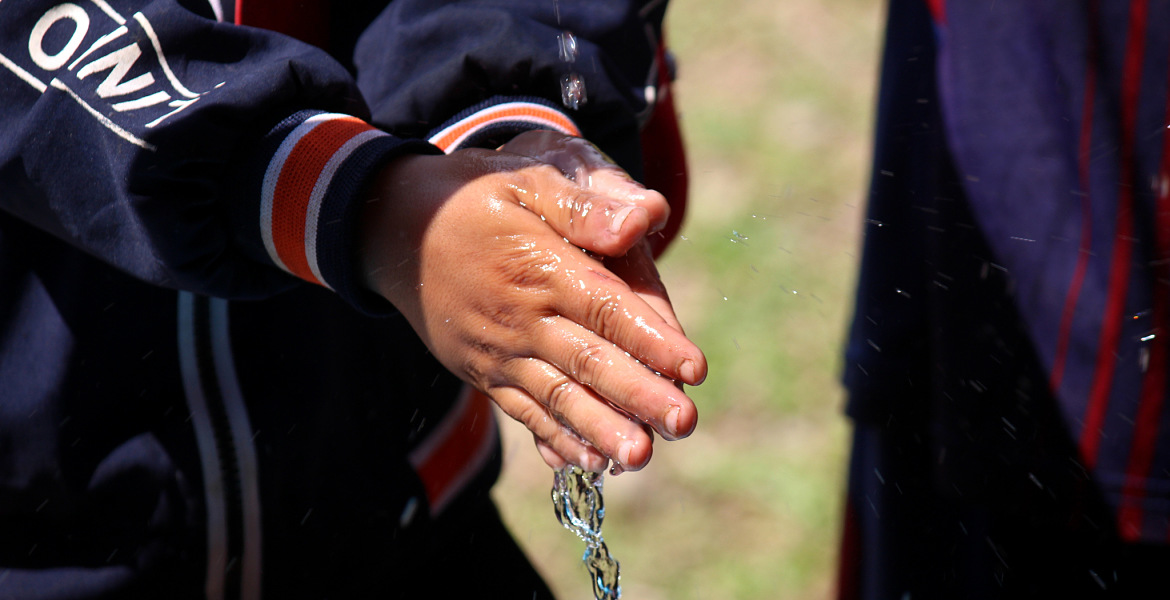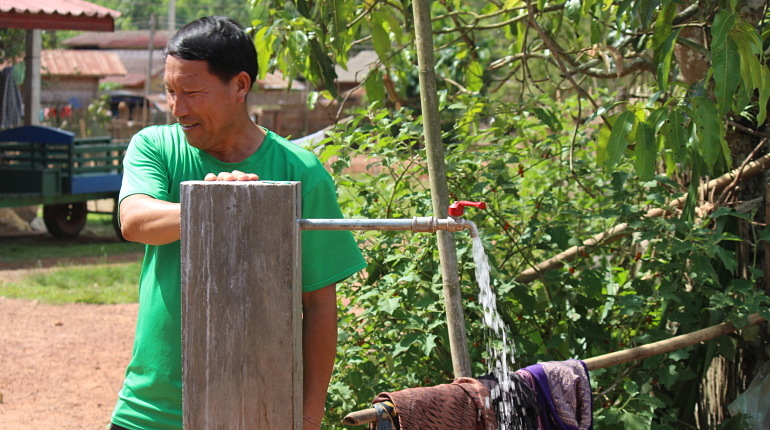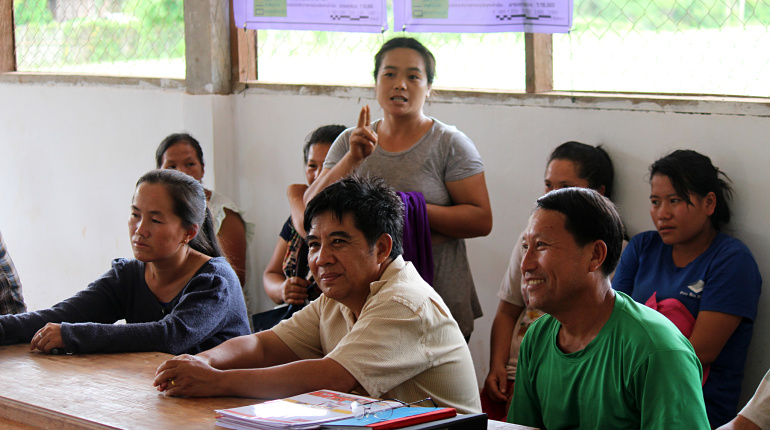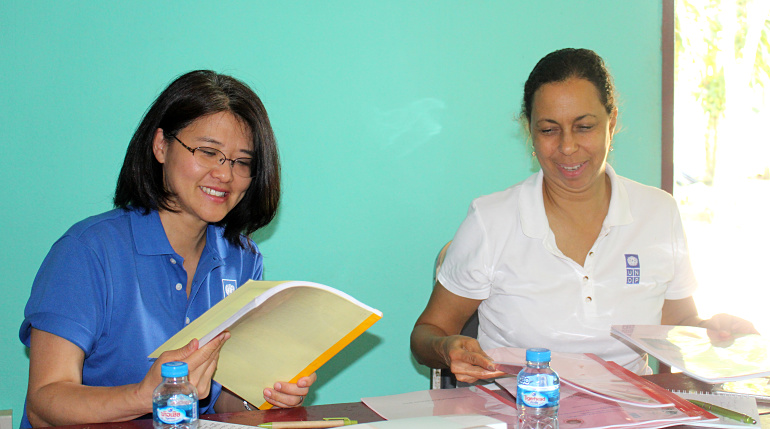--- Image caption ---
Vientiane, 18 June 2018 - The inhabitants of the Xiangme village cluster in Saysomboun province of Lao PDR know better than anyone what an effort putting a simple glass of water on the table can be. For years, contamination of drinking water and frequently dysfunctional water pipes were a never-ending source of sorrow for the villagers.
Boiling water in order to purify it added to the village women’s daily chores, and required them to fell trees in the nearby forest. In addition to preventing women from engaging in more productive tasks, the practice was also detrimental to the local ecosystem and to the health of the villagers who were constantly subjected to high levels of smoke in their environment.
Former university professor Dr. Bounby Lasysamay, who had moved back into his childhood village in Xiangme after retirement, witnessed these problems for years and decided to bring the unsustainable cycle to an end. Gathering the local village chiefs together for a meeting, Dr. Bounby suggested that they apply for a grant from the Global Environment Facility Small Grants Programme (GEF SGP), which is implemented by UNDP. Village chiefs decided to follow his advice and to the joy of everyone, their joint proposal was approved in the end of 2016.
A villager displaying the results of the repaired water supply scheme
The solution was simple yet effective. With support from the GEF SGP, Dr. Bounby and the community worked with the local government to demarcate the watershed, which is the source of water for the community, as protected area to ensure sustainable supply of water to the households. In addition to making some basic reparations to the gravity-fed water supply scheme and extending it to reach all 729 households of the area, the project promoted water filters to ensure clean water supply to the community. Most underprivileged and vulnerable households would have the initial water filters installed by the project, while other households would get to buy them for a subsidized fee. As a secondary goal, the project attempted to stimulate the local economy by training select villagers to sell, install and maintain water filters. This would be a way of ensuring that the benefits of the project were long-lasting and also economical in nature.
The project was closed three months ago and Dr. Bounby is proud to present its results: “With support from the community, we were able to conserve 1,520 ha of the upstream watershed area to ensure sustainable water supply to the community. Downstream, our target at the beginning of the project was to ensure the supply of clean water to 378 households by supporting the installation of water filters. We surpassed all expectations, as 442 households are now using them. The use of firewood has decreased by 39%! 87% of the villagers using water filters have reported that their problems with diarrhoea and stomach aches have significantly reduced,” he explains.
Villagers took the floor after Dr Bounby (front and center) presented the results of the project in the village school
Despite these improvements, not all concerns among the villagers have vanished. Especially questions regarding the maintenance of the water supply have sparked passionate debates in the community. Some villagers feel that the burden of ensuring that the community has access to clean water still falls mostly on the shoulders of women. “During the rainy season there are always problems with the water pipe. Just this month I have had to fix it three times. Each time I have had to make a three kilometer hike to a nearby hill”, says Kip, a woman from the community.
For the Global Manager of the GEF Small Grants Programme, Ms. Yoko Watanabe, this is a common lament. “Learning from other similar projects, a good solution to problems like this could be forming a community team or committee that could manage the maintenance of these facilities, and possibly collect fees among the beneficiaries to sustain the results of a project. The burden should not be borne by one individual”, she says.
Laying the foundation for development is often much easier than actually sustaining it. The benefits of water filters are doubtless, rather than burning trees to boil the water, especially when thinking about long-term benefits in having a healthy forest and ecosystem in the village, and also considering the benefits for the globe. People like Dr. Bounby Lasysamay are the agents of change we need in local communities, reminding us all about the importance of long-term solutions even when there are a lot of short-term problems at hand.
Global Manager of the GEF SGP, Ms. Yoko Watanabe and Head of Natural Resources Management and Climate Change Unit, Dr. Margaret Jones-Williams reviewing the project outcomes
Please read this article in Lao.
For more information on this project, please contact:
Mr. Bounmy Phanmakone, National Coordinator, GEF SGP
E-mail: bounmyP@unops.org; Tel: (856 22) 353 311

 Locations
Locations







